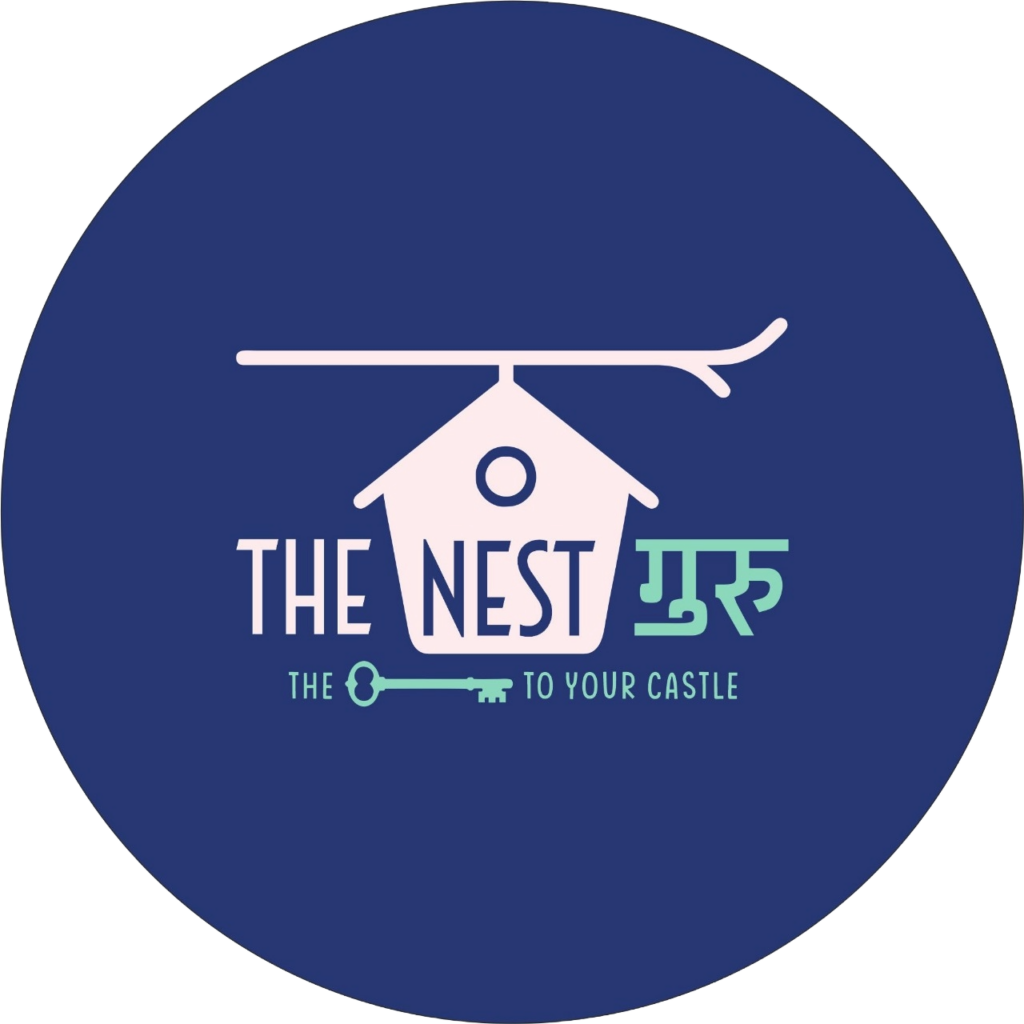Connect With Us Today
Reach out to our expert team for loan guidance, personalized solutions, and hassle-free assistance across all financial services.

What is a Home Loan?
A home loan, also known as a mortgage loan, is provided by a bank or financial institution to
help individuals buy or construct a house. The borrower agrees to repay the loan amount along
with interest in monthly instalments over a fixed period, which can range from 5 to 30 years.
Key Features of a Home Loan:
- Loan Amount: Based on your income, credit score, and the value of the property.
- Margin: Usually 10-25% of the property cost is paid by the customer.
- EMI (Equated Monthly Instalments): Fixed monthly payments including principal and
interest. - Interest Rates: Can be fixed or floating.
- Tenure: The duration to repay the loan, typically up to 35 years.
Types of Home Loans:
1. Home Purchase Loan – For buying a new or resale home.
2. Home Construction Loan – For building a house on owned land.
3. Home Improvement Loan – For renovations or repairs.
4. Home Extension Loan – For adding space or rooms to an existing home.
5. Home Loan Balance Transfer (BT) – To switch your loan to another lender for a better
interest rate.
Benefits of a Home Loan:
- Helps you own a home without paying the full amount upfront.
- Offers tax benefits under Section 80C and 24(b) of the Income Tax Act (in India) under Old Tax Regime.
- Builds your credit score when paid on time.
- Long tenure makes repayment manageable through EMIs.
Things to keep in mind before taking Home Loan
Home Loan is a product which is being aggressively pursue by Bank’s in India. Every Banks/ NBFCs are doing it due to following reasons: emotional value attached with the property, Secured Lending, Government push for the housing sector, Large Ticket Size with Long Tenure, Low NPA product and Cross Sell Opportunities etc.
Download The Document Checklist For Home Loan
Frequently Asked Questions
Home Loan (HL) is given generally for following purposes:
Purchase of plot, Plot purchase cum construction, Only Constructions, Renovation of existing house, Extension of house, Purchase of Ready to move in house etc.
Eligibility criteria vary by lender but generally include:
- Age: 21 to 65 years
- Stable income source (salaried or self-employed)
- Good credit score (typically 700+)
- Minimum work experience (usually 2 years for salaried individuals and 3 years for self-employed)
Commonly required documents include:
- Identity proof (Aadhaar, PAN, Passport, Voter ID)
- Address proof (Utility bills, Rent Agreement, Aadhaar)
- Income proof (Salary slips, ITR, Bank statements)
- Property documents (Sale agreement, Title deed, Approved Map)
700+ is considered to be a good credit score. More the credit score, more are the chances you will get home loan. However, some Banks / NBFCs also finance for the credit score between 650 to 700, strictly on case to case basis.
The answer to this question is it’s depends on your need. If you are someone who also make short term investments then you should take it. A person who does not have enough liquidity should avoid it as it comes with a cost. Generally, Banks who offer this product charge premium of 0 to 0.35% in interest rate.
Yes. Bank’s / NBFCs consider factors like your income, existing liabilities, credit score, age, and property value to determine your loan eligibility. If you are in high bracket of income then your EMI may go upto 70-75% of your monthly income. You can use EMI Calculator to check your tentative eligibility amount. For more accuracy, you can contact us.
EMI depends on interest rate, loan tenure and loan amount. If we assume that interest rate is 8.30% and tenure is 25 years then EMI will be ₹ 792/- per lacs. You can multiply this with your loan amount to get approximate EMI.
Generally, all the home loans are sanctioned on floating interest rate. If you want you can opt for fixed interest rate which is generally 2-4% higher than the floating interest rate.
- Interest rate will change as and when there is change in repo rate (announced by RBI). Bank’s / NBFCs may have their different minimum fixed tenure (generally 1 year) in which they do not change the interest rate unless and until there is change in the repo rate.
Yes. You can give an application to your existing bank and they will do it after charging you some fees (Normally ₹ 1180/-, However, it will vary from one Bank to another Bank). Some banks also have restriction that you can get the interest rate changed only certain number of times viz. 2 to 3 times during the currency of the loan. If there is difference of around 0.50% to 1% in interest rate then you can shift your loan to other Bank keeping in mind the other costs viz. insurance, processing charges, remaining loan amount and tenure etc.
All the Banks/ NBFCs can sanction additional funds to you depending on the current valuation of your property. For a small top up loan (generally upto ₹ 5.00 lakhs), Banks have completed digital process for disbursing of such top up loan.
Generally, Banks/ NBFCs do not charge any pre-payment and Fore closure charges on Home Loans. However, some may charge a penalty, especially on fixed-rate loans.
There is no regulatory bar on number of home loans you take from Banks provided you meet out the other eligibility requirement like income and the property type. But some Banks/ NBFCs charge higher interest rate if you already have two running home loans.
Yes, joint home loans can be taken with a spouse, parent, or sibling. However, few Government Banks extend home loan to unrelated borrowers if they are owner of the property. This helps improve loan eligibility and allows both borrowers to claim tax benefits.
Approval time depends on two things – Type of customer and Property type. If you are a Salaried Customer and buying a property from the builder and which is already approved by your Bank then your loan may get sanctioned and disbursed within 3-5 working days. In the Self-employed or professional case it may take 5-7 working days. In other cases, typically it takes 10-15 days, depending on documentation, verification, and lender processing time.
Home loan is being provided by various Banks/ NBFCs at a very competitive rates compared to other loans. You can use your savings for future contingencies or for your present expenditures. Some part of it you may invest for a better return as well. Moreover, most of banks/ NBFCs do not charge any pre-payment / foreclosure charges so you can make part payment whenever you find it comfortable at few clicks.
Banks/ NBFCs follows RBI guidelines and generally finance from 75% to 90% (Loan to Value – LTV ratio) depending on your loan amount. However, for specific properties/ locations some Banks/ NBFCs also finance upto 90-95% of the property value excluding the registry charges.First u/s 80 C, where principal repayment upto 1.50 lacs is allowed.
Second u/s 24 (b), where interest repayment upto 2.00 lacs is allowed for self-occupied property.
There are some banks which finance you after assessing your credit worthiness through transactions in your account, ITR and other means. If they are satisfied with your disposable income then you will get home loan.Second u/s 24 (b), where interest repayment upto 2.00 lacs is allowed for self-occupied property.
Yes, there are some Banks/ NBFCs which reimbursed you for expenses incurred upto six months over and above your margin.
No, generally it is not mandatory as per Bank’s Policy but for an additional safeguard, Bank’s / NBFCs insist for the same. If you do not want to opt for the insurance policies then you can inform the Banker at the initial stage itself. Some Bank’s / NBFCs also offer some concession in processing and interest rate if you take their Loan Protector insurance policy.
No. You can execute a Power of Attorney to someone who is in India and can complete all the formalities while residing at your place. You need to have one local co-applicant.
Missing EMIs can lead to penalties, a drop-in credit score, and even legal action. Bank’s take soft measures till the 2 EMIs are overdue. If you consistently default and 3 or more EMIs are overdue then Bank may seize and auction the property under Sec. 13 (2) & Sec. 13(4) SARFEASI Act.
At The Nest Guru, we simplify the home loan process by:
- Helping you compare the best loan offers from multiple lenders.
- Assisting with documentation and application filing.
- Ensuring fast approval and hassle-free processing.
For more details or assistance, contact us today!
